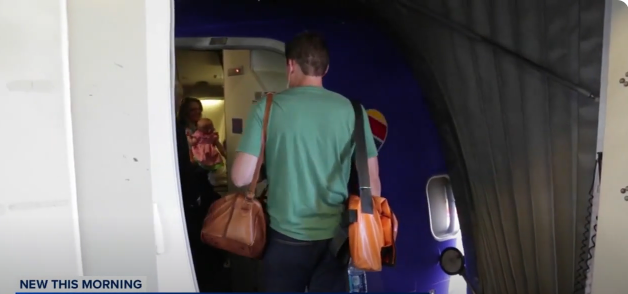
Southwest Airlines, known for its customer-friendly policies, is making a significant change to its baggage policy. From 28 May, the airline will begin charging for the first and second checked bags, a departure from its long-standing “Bags Fly Free” slogan.
Why Is Southwest Making This Change?
Southwest Airlines has offered free checked baggage for nearly 60 years, even as competitors introduced and increased baggage fees. However, the airline now aims to boost profitability and attract a broader customer base.
Who Will Be Exempt from Baggage Fees?
Members of the A-List loyalty programme
Holders of Southwest-branded credit cards
Passengers travelling on business fares
According to Bob Jordan, CEO of Southwest Airlines, this change is part of a broader strategy to “meet current and future customer needs” while improving financial performance.
A Sudden Change in Strategy
Previously, Southwest had no plans to charge for checked baggage. In fact, Jordan had stated in an investor call last year that free baggage was a key factor in attracting customers to Southwest. However, the airline’s perspective shifted after several strategic changes, including:
Selling tickets on third-party websites – Platforms like Google Flights and Kayak revealed that customers prioritise price over baggage perks.
Hiring new executives – New leadership from other airlines, where baggage fees are standard, influenced the decision.
Aligning with industry trends – Other major airlines have been generating substantial revenue from baggage fees.
Financial Impact of Baggage Fees
Southwest’s decision is expected to have a significant financial impact. Despite its free baggage policy, the airline still collected $73 million in baggage fees in 2023 and $62 million in the first nine months of 2024. However, this amount pales in comparison to its competitors:
American Airlines – $1.4 billion in baggage fees (2023)
United Airlines – $1.2 billion (2023)
Delta Air Lines – $985 million (2023)
Industry analysts believe Southwest will see an immediate boost in revenue. Jeff Windau, an analyst at Edward Jones, stated that as long as the airline remains competitively priced, customer losses should be minimal.
Reactions from the Industry
Southwest’s competitors quickly responded to the news:
Delta CEO Ed Bastian – Believes Southwest’s decision will benefit competitors as customers who previously preferred Southwest due to its baggage policy may switch airlines.
United CEO Scott Kirby – Called the change “the slaying of a sacred cow” and predicted that Southwest’s rivals would gain from the move.
Shares of Southwest Airlines (LUV) surged by more than 6% following the announcement.
Other Recent Changes at Southwest Airlines
The baggage fee announcement is just one of several changes Southwest has implemented since Elliott Investment Management acquired a $1.9 billion stake in the company. These changes include:
Switching to assigned seating – Moving away from open seating, a hallmark of Southwest’s brand.
Introducing premium seats – Aligning with traditional carriers to offer more seating options.
Launching red-eye flights – Expanding scheduling options to meet customer demand.
Selling tickets on Expedia – Previously, Southwest tickets were only available on Southwest.com.
Introducing basic economy fares – These low-priced tickets come with added restrictions, similar to major competitors.
Cutting corporate workforce – The airline laid off 15% of its corporate staff (1,750 employees), marking its first-ever mass layoffs. This move is expected to save $210 million in 2025 and $300 million in 2026.
New leadership – Tom Doxey, formerly of Breeze Airways, took over as Southwest’s Chief Financial Officer, replacing Tammy Romo, who is set to retire.
What This Means for Travellers
For frequent Southwest passengers, this policy shift marks the end of an era. Customers who relied on free checked baggage will now need to factor in additional costs when booking flights. However, Southwest may still remain a competitive choice if its overall pricing remains attractive.
As the airline continues to implement strategic changes, it remains to be seen how customers will respond in the long term. Will Southwest’s loyal passengers stay, or will they turn to other airlines? Time will tell.
Final Thoughts
Southwest Airlines has long been known for its unique policies and customer-friendly approach. However, with increasing pressure to remain profitable, the airline is now aligning itself with industry norms. While this could alienate some customers, it may also provide new opportunities for growth.
What do you think about Southwest’s decision to introduce baggage fees? Will it impact your choice of airline? Let us know your thoughts!
